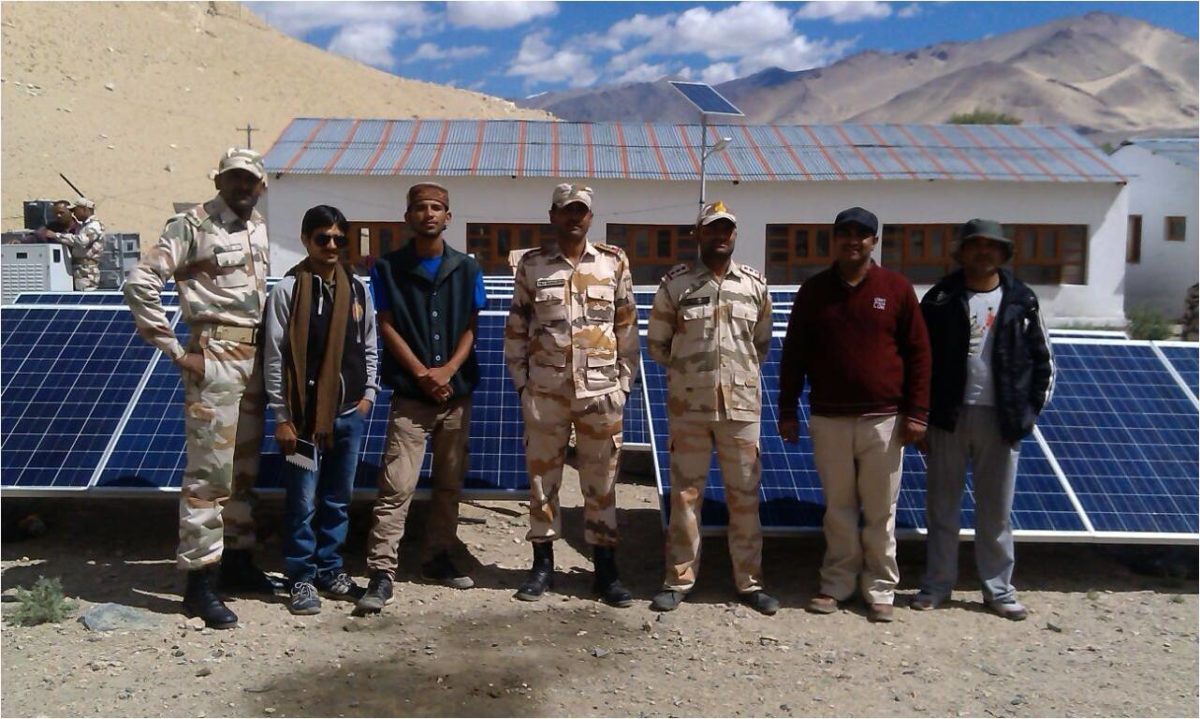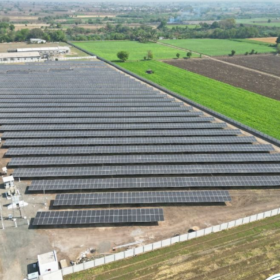India has set up solar-powered outposts for The Indo-Tibetan Border Police (ITBP) at a forward location near the India-China border at the height of 18,000 feet. With solar panels covering the roofs, these outposts get uninterrupted electricity and are capable of central heating for the troops to brave the freezing weather of the high-altitude mountainous region.
The camps use PV panels from Indian manufacturer MicroSun Solar Tech to generate the electricity.
The India-China border runs from Ladakh to Arunachal Pradesh—the remote mountainous area of Northern and Eastern India that is located high up in the Himalayan Range. The area, known for its pristine beauty and challenging terrain, is marked by far-flung, sparsely populated villages—a majority of which have inadequate or no energy supply as the terrain makes drawing grid lines a daunting task.
The MicroSun Solar team was able to successfully transport the panels, install and execute the project despite the challenges posed by the area’s difficult terrain.
“The camps are nestled on top in the hilly region. The sheer drop of the hillside rules out the set-up of a power grid. Trekking and flying through Army helicopters to as high as 18,000 feet to transport the solar energy equipment and set it up was a big task but much of fun too. Our engineers experienced the most challenging job to install and execute the projects, but we completed the task with sheer dedication,” said MicroSun Solar in a media statement.
This content is protected by copyright and may not be reused. If you want to cooperate with us and would like to reuse some of our content, please contact: editors@pv-magazine.com.









1 comment
By submitting this form you agree to pv magazine using your data for the purposes of publishing your comment.
Your personal data will only be disclosed or otherwise transmitted to third parties for the purposes of spam filtering or if this is necessary for technical maintenance of the website. Any other transfer to third parties will not take place unless this is justified on the basis of applicable data protection regulations or if pv magazine is legally obliged to do so.
You may revoke this consent at any time with effect for the future, in which case your personal data will be deleted immediately. Otherwise, your data will be deleted if pv magazine has processed your request or the purpose of data storage is fulfilled.
Further information on data privacy can be found in our Data Protection Policy.